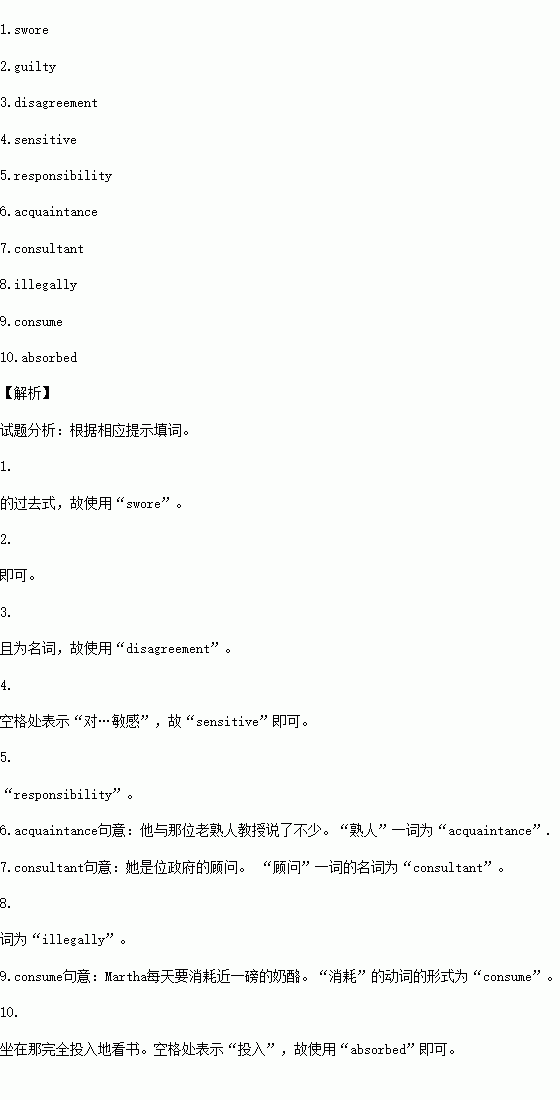题目内容
根据相应提示填词
1.Dad s ________ not to smoke again, but mum didn’t believe his promise.
2.I feel really g__________ at forgetting her birthday again.
3.He respects those who are in d___________ with him.
4.—— A lot of animals are dying out.
—— Yes, especially those that are most s_______ to the changes of the environment.
5.It’s our duty and __________ (责任) to protect our environment all around the world.
6.He exchanged a few words with the professor, an old ____________(熟人) of his.
7.She is a ___________(顾问) to the government.
8.He began the project by __________(非法地) using the university computer system..
9.Martha would ____________(消耗) nearly a pound of cheese every day.
10. — What kind of person do you think Tom is?
— He is a silent but hard-working student, always sitting there, a_____ in the book he is reading.

